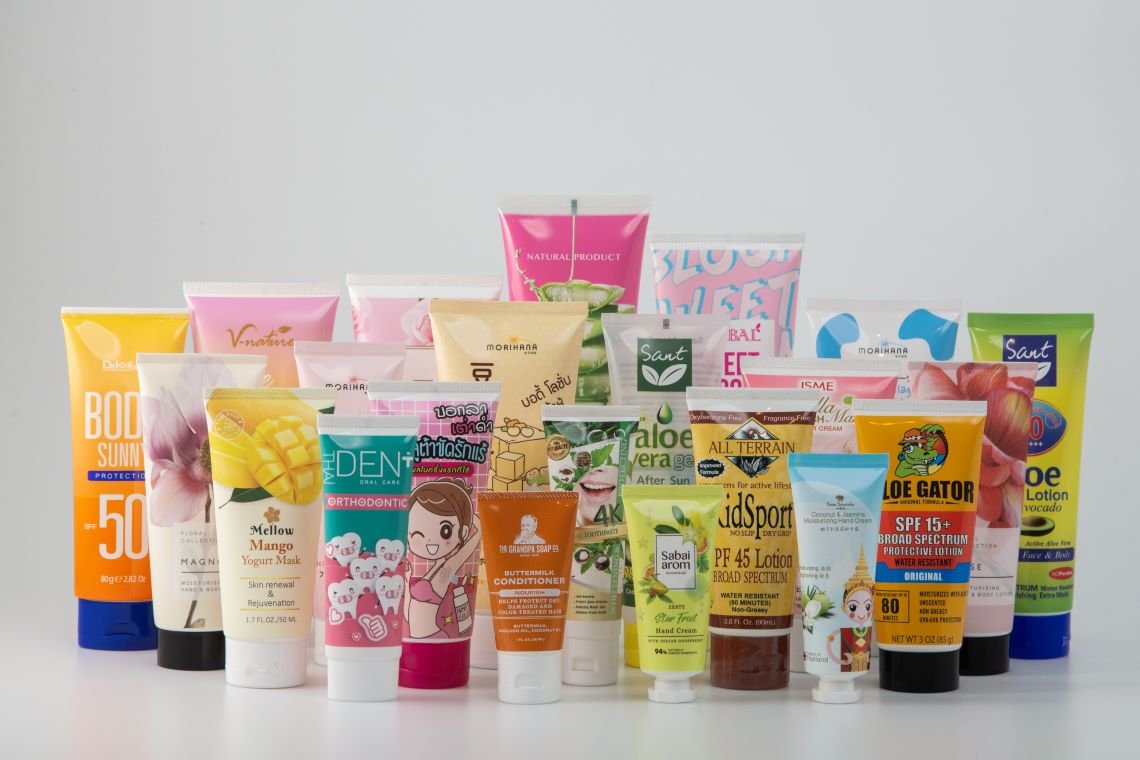A Plastic Tube Packaging Supplier That’s Making a Difference
Last updated: 28 Apr 2022 | 1659 Views |

Many industrial companies are beginning to recognise the ecological conservation issues affecting the world today. They’re stepping up and taking a proactive approach to improving the health of the earth.
We’ll take a look into the efforts of a plastic tube packaging supplier in Thailand and why they act as a great example for others around the world to follow.
Difference in Corporate Attitudes
For many companies, making an effort to operate in a more ecologically sustainable fashion amounts to little more than a public relations exercise. The company positions itself as environmentally aware and asks the public to join them in helping to save the planet.
In reality, the PR exercise is the sum of their efforts. They feel that they've done their part by making the problem known. And they’re more than happy to reap any positive benefits from the campaign.
On the other hand, some companies are committing major resources, time and money to improving the way they operate and the products they produce. Their goal is simply to improve the state of the industry and the health of the natural environment. The managers of these companies have a genuine concern for their children’s future, and the company represents something bigger than themselves that can help make a larger ecological impact.
These are the companies that should serve as examples to the industrial world. They're making a concrete sacrifice to pursue what they see as their moral obligation, and they should be supported for their efforts.
The Beneficial Efforts of Victor Packaging
One of the companies that should be singled out for recognition is Victor Packaging, a plastic packaging manufacturer in Thailand. When the company first started their business in 1975, few people could foresee how detrimental the impact of plastic would be on the health of the planet.
As the problem became apparent, some people asked why the plastic industry, as an unsustainable practice, didn't just shut down. As people in the industry were well aware, the answer was that the world's demand for their products was simply too large. If individual companies pulled out of the industry, others would simply take their place, and the problem would continue.
Addressing the problem intelligently from within the industry was preferable to simply abandoning the industry and, in effect, running away from the problem.
Victor Packaging was one of the companies that elected to stay in business and improve it from within. They analysed their processes and products and started working on improving the sustainability of both.
Reducing the Carbon Footprint
The managers at Victor Packaging recognised that improving their products wouldn’t make much of an environmental impact unless they reduced their carbon footprint at the same time. And the steps they could take to retool the machinery and operations at their six plants would also benefit their research into more sustainable products.
Reducing industrial carbon footprints is a big and complex job. Every part of a company's operations can contribute to its carbon footprint. The consumption of raw materials, fossil fuels, and manufactured items is the most obvious contribution.
But the way that products are transported can also be added into the equation. The building of roads and the fuel needed for the trucks that drive on these roads transporting the products is also a factor. The pervasive use of fossil fuels in industrial manufacturing, both as a basic fuel and in the generation of electricity, needs to be carefully accounted for.
Victor Packaging embarked on an ambitious programme of installing new hybrid technology machines in their plants. The steps they’ve taken to improve their operations will be completed by 2023 when they will have converted most of their equipment to use these new hybrid machines that consume 70% less power.
Reducing Plastic Waste
The effort to reduce plastic waste within the packaging industry involves dealing with safety and hygiene regulations as well as developing new materials that are easier to recycle.
The goal of the plastic packaging industry has always been to include as much recycled or post-consumer resins (PCR) as possible. But governing regulations within the industry state that plastic tubes used for packaging food products must not contain more than 5% of this "foreign" material.
Victor Packaging found another approach to the problem by formulating a higher grade of the EVOH material used to make these tubes. This improved material could create thinner-walled tubes with the same strength, thereby reducing the total plastics used (including the 5% recycled material) by up to 25%.
Multiple-layer tubes are now being produced using PCRs only on the exterior layers of the tubes that don’t come into contact with the food product. These new tubes have found an application for PCRs that further reduces the reliance on new plastic material.
Improving the Industry to Help the Planet
Victor Packaging is a progressive company working to improve its products and operations. If you're looking to partner with an innovative and industry-leading plastic packaging supplier, contact Victor Packaging to discover how they can benefit your brand.



